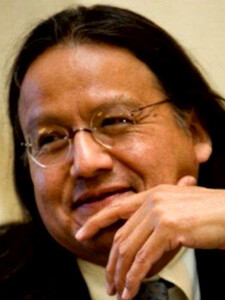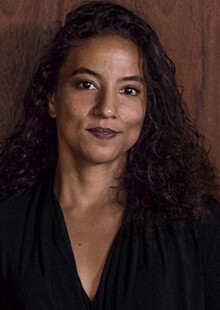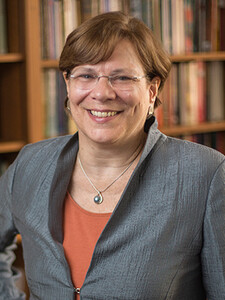Three Leading Scholars Receive Secondary Appointments at YLS
Leading scholars Gerald Torres, Elizabeth Hinton, and Lauren Benton joined the Yale Law School faculty on July 1, 2020 with secondary appointments as Professors of Law, bringing a range of new expertise on critical areas of the law to the community.
Torres, an acclaimed global scholar of environmental law, critical race theory, and federal Indian law, received a primary appointment at the Yale School of the Environment last year. Hinton, a leading author and historian who studies the persistence of poverty, racial inequality, and urban violence in the 20th century United States, has joined the Department of History and the Department of African American Studies at Yale. And Benton, a comparative and world historian whose research focuses on law in European empires, the history of international law, and Atlantic world history, has joined Yale in the Department of History.
“It is thrilling to welcome these brilliant scholars to Yale Law School. They are shining stars, and we are so lucky to have them in our midst,” said Dean Heather K. Gerken.
While secondary appointments are common in some departments, they are extremely rare at the Law School, requiring the same deliberation required for a full-time appointment.
“These appointments offer us a chance to strengthen interdisciplinary ties, diversify our faculty, and build intellectual connections across campus,” said Dean Gerken. “We are grateful to have a chance to partner with the University on these efforts.”

Previously, Torres taught at Cornell Law School, the University of Texas Law School, and the University of Minnesota Law School, serving as an associate dean at both. He is also a former president of the Association of American Law Schools and served as deputy assistant attorney general for the Environment and Natural Resources Division of the U.S. Department of Justice during the Clinton administration.
Torres’s past work has examined how U.S. regulations have created racially or ethnically marginalized communities that bear a disproportionate share of environmental burdens and also has focused on developing strategies to improve governmental decision-making. He is also a leading scholar in critical race theory — a theoretical framework that examines questions of race and racism from a legal standpoint. His book The Miner’s Canary: Enlisting Race, Resisting Power, Transforming Democracy, coauthored with Lani Guinier ’74, was described as “one of the most provocative and challenging books on race produced in years.”

In her book From the War on Poverty to the War on Crime: The Making of Mass Incarceration in America (with Harvard University Press), Hinton examines the implementation of federal law enforcement programs beginning in the mid-1960s that laid the groundwork for the expansion of the U.S. prison system. In revealing the links between the rise of the American carceral state and earlier anti-poverty programs, Hinton presents Ronald Reagan’s War on Drugs not as a sharp policy departure but rather as the full realization of a shift towards surveillance and confinement that began during the Johnson administration.
Before joining the Yale faculty, Hinton was a Professor in the Department of History and the Department of African and African American Studies at Harvard University. She spent two years as a Postdoctoral Scholar in the Michigan Society of Fellows and Assistant Professor in the Department of Afroamerican and African Studies at the University of Michigan. A Ford Foundation Fellow, Hinton completed her Ph.D. in United States History from Columbia University in 2012.
Hinton has written articles and op-eds for the Journal of American History, the Journal of Urban History, The New York Times, The Atlantic, The Boston Review, The Nation, and Time. She also coedited The New Black History: Revisiting the Second Reconstruction (Palgrave Macmillan) with the late historian Manning Marable. She is a member of Yale Law School’s Justice Collaboratory, which brings together scholars from a variety of fields to study criminal justice reform. Hinton will also be an advisor on the Million Books Project, a collaboration between the Mellon Foundation and the Justice Collaboratory to distribute a curated 500-book collection to 1,000 medium and maximum security prisons, including at least one juvenile detention center, across every state in the United States over the next three and a half years

In 2019, the Toynbee Foundation awarded Benton the Toynbee Prize for significant contributions to global history. She is a recent recipient of a Guggenheim Foundation Fellowship and currently serves as president of the American Society for Legal History.
A graduate of Harvard University, Benton earned her Ph.D. in anthropology and history from Johns Hopkins University. She began her scholarly career as an economic anthropologist researching industrial labor and the informal economy in Spain and Latin America. Prior to coming to Yale, Benton was the Nelson O. Tyrone Jr. Professor of History and professor of law at Vanderbilt University. Her previous appointment was as Julius Silver Professor of History and affiliate professor of law at NYU. Benton served as dean of humanities and dean of the Graduate School at NYU and as dean of the College of Arts and Science at Vanderbilt.


